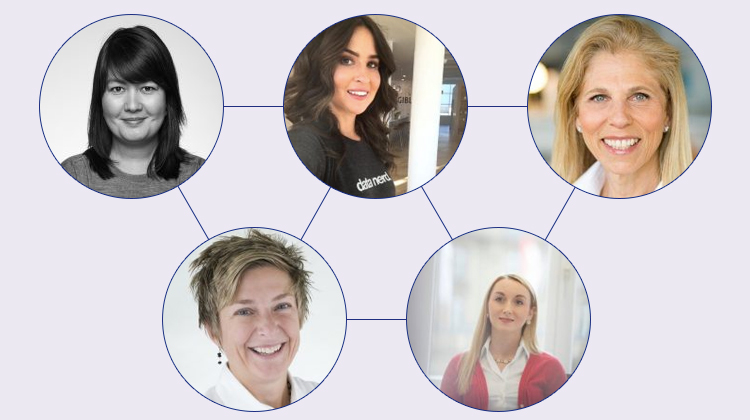5 trends we’re watching this week
[alert type=yellow ]Every week at Tradestreaming, we’re tracking and analyzing the top trends impacting the finance industry. The following is a list of important things going on we think are worth paying attention to. For more in depth trendfollowing, subscribe to Tradestreaming’s newsletter .[/alert]
- As more pay by smartphone, banks scramble to keep competitive in consumer banking (NYT)
- R.I.P. Bitcoin. It’s time to move on (more on the theme that Bitcoin is permanently broken). (Linkedin)
- The challenges of insurance in the era of drones, cyberwarfare, and connected wearable devices (TechCrunch)
- Young high-earners driving fintech revolution as early adopters of new tools, platforms (ComputerWeekly)
- Francois de Lame of PolicyGenius on how to build a digital-first insurance brand (Tradestreaming)
Francois de Lame of PolicyGenius on how to build a digital-first insurance brand
Francois de Lame is co-founder and Chief of Marketing of PolicyGenius
What is PolicyGenius and where did you get the inspiration to create it?

PolicyGenius is an online marketplace for insurance that offers self-directed consumers open access to unbiased insurance information, tailored recommendations, and transparent quotes. PolicyGenius goes beyond what today’s aggregators and online agents offer by providing the best customer experience possible, with engaging educational material, decision support tools, and honest advice in a fully transparent manner every step of the way. We have brought consumer insurance into the 21st century with instant, accurate online quoting and smart digital advice tools to solve the obstacles created by America’s outdated insurance industry.
PolicyGenius is not directly affiliated with any one insurer. Instead, we have vetted and partnered with dozens of the nation’s top insurance companies for our platform. All of our advice, quotes and educational guides are focused on our customer’s needs. PolicyGenius is not a lead-generator, and we will never sell your data to a third party, or make you give us your contact information before you can see a quote. We work with our customers the way we’d want to be treated to ensure they get the best insurance for their needs.
My co-founder and I were inspired to build PolicyGenius after having served many large insurance companies at McKinsey & Company. We were brought in on numerous occasions to help them think about how to reach a more digitally savvy consumer who was not interested in sitting down face-to-face with an agent to talk about insurance. The US insurance industry has historically relied on agents and operated under the assumption that “insurance is sold, not bought”. While this is slowly beginning to change, we didn’t see it happening fast enough. We started PolicyGenius to challenge this mantra and to prove that with smart digital tools and a transparent process, consumers would readily adopt digital channels to research and purchase insurance.
Why is buying insurance so complex and frustrating?
I believe the industry, particularly agents, would like you to believe that it’s complex, thus proving the value they bring. For some insurance decisions — for example, purchasing whole life insurance — I tend to agree that an agent or financial advisor should be involved in the decision making process. However, for many insurance products, this face-to-face interaction is not necessary. The industry continues to force consumers into this heavily-mediated way of doing business, which is not how many of us want to interact with insurance.
Another source of frustration is lead generation, which unfortunately dominates the business models of many online insurance verticals today. Consumers are forced to enter their contact details even if they just want to see a quote, and then they receive multiple sales calls from different agents.
No one in the US has truly set out to create a multi-product independent insurance distribution platform before — one that helps consumers understand how insurance fits into the context of their financial lives. Historically, the customer of the insurance industry has been the agent and this needs to change. The key to success in the next decade is to focus on the consumer. By bringing more transparency to the process and giving consumers the tools to shop for themselves, we believe much of the complexity and frustration can be removed.
Why does it feel like so much less innovation has happened in insurance vs. some other consumer industries out there?
Insurance is a tough industry for outsiders to jump into. It’s heavily regulated at the state level and you need a deep knowledge of the products and processes to be successful. Crucially, you need to have strong relationships with your insurance partners. From day one, we focused on developing our relationships with carriers. They’re the ones who have built trusted brands over many years, something that we knew we would need to leverage in order to succeed.
What makes things harder for new entrants is that not only are you selling consumers an intangible good that they hope to never use, but as a new entrant, consumers will automatically be skeptical of you. If I were to start up a life insurance company today, you’d need to believe I’ll still be around in 30 years in case you need to make a claim.
Because of these constraints, I believe incremental innovation is what will bring large changes in the industry. This is not a particularly enticing proposition for technologists and venture firms looking to turn an industry on its head in 12-24 months. But for those who are willing to play the long game, and who have a clear understanding of where the problems in the industry lie, there is huge opportunity to deliver significant customer value and build a successful business.
As Internet-enabled insurance grows, are we going to see the market structure change? I’m thinking most about the role of agents.
We believe in providing the channel of choice to consumers. What this means is that consumers should be able to choose the channel through which they engage their insurer or agent. Many consumers still prefer to meet face-to-face with an agent and I don’t believe this will ever disappear. However, the industry needs to invest more in opening up digital channels, since for many consumers this is how they want to manage their financial lives. Many in the industry see this as a “millennial” issue, but I believe this is misguided. Across generations, many consumers are now digitally savvy, and therefore, it is imperative that the insurance industry caters to them.
The urgent need for these new distribution channels is compounded by the fact that a large proportion of the current agent force is nearing retirement. Without new channels, insurers are going to find it harder to distribute their products.
It’s hard in general to distribute consumer products and even harder/more expensive to acquire financial customers. How do you think about acquisition? What’s working, not working?
Our focus is on building a long term relationship with a client, such that we’re always top of mind when it comes to them making an insurance decision. We use content to develop this relationship and build trust with a client. In this industry, it’s incredibly important to understand the purchasing funnel and what influences someone’s behavior. By understanding what customers are looking for, and where they might be looking for it, we’re able to target our marketing efforts and tailor our messaging.
Our marketing efforts are focused on building a long-lasting brand that is synonymous with independent insurance advice and shopping, thereby increasing the effectiveness of our acquisition as we scale. The most important aspect of marketing, however, is to provide something of value to the consumer. The service we have created fills a gap in the market and solves a major point for many consumers.
Photo credit: Asim Saeed (Misa Khan) via VisualHunt / CC BY










